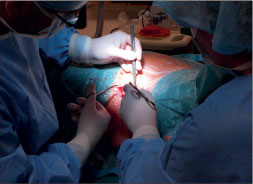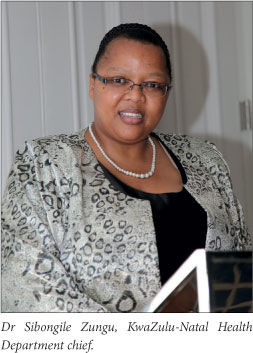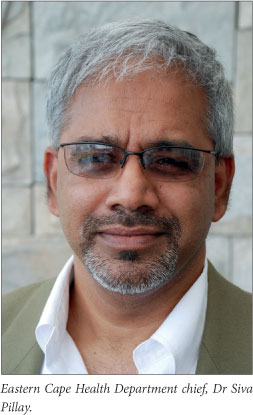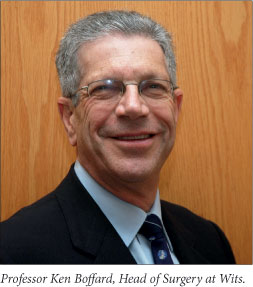Serviços Personalizados
Artigo
Indicadores
Links relacionados
-
 Citado por Google
Citado por Google -
 Similares em Google
Similares em Google
Compartilhar
SAMJ: South African Medical Journal
versão On-line ISSN 2078-5135
versão impressa ISSN 0256-9574
SAMJ, S. Afr. med. j. vol.102 no.12 Pretoria Jan. 2012
IZINDABA
RWOPS abuse - Government's had enough
Chris Balteman
Working privately during their official State working hours, nearly one in four specialists forensically reviewed and employed at the Nelson Mandela Academic Complex and/or Walter Sisulu University in Mthatha earned between R6 500 and R126 000 extra over six months last year.
One professor was paid R781 867 by six medical aid schemes reviewed, but there was no evidence of his having used the private hospital theatre so popular with his 'two-timing' colleagues - and which he listed in his application to do 15 - 17 hours of private work per week. The forensic auditors suggested a further probe into his payments.* What appears to be avarice and a lack of moral fibre is not unique to this minority of Mthatha specialists. Rather, it mirrors nation-wide abuse of the Remuneration for Work Outside the Public Service (RWOPS) system. It was introduced by government in January 2000 as a recruitment and retention tool and to encourage on-going research and the development of skills (not always available in the public sector). With a chief specialist in the public sector today earning a gross salary (including commuted overtime of up to 16 hours per week) of between R1.4 and R1.6 million per annum and a specialist with more than 10 years' experience in line to earn R1.163 million annually, one of the foundation stones of RWOPS (recruitment/ retention) has crumbled. This and the widespread abuse have led to an almost unanimous call across political lines for its scrapping, with provincial health chiefs and the national minister about to clamp down.

‘Professional theft’ - Health Minister
A ‘disappointed’ National Health Minister, Dr Aaron Motsoaledi, believes that patients are actually dying because of specialist greed. He says high mortality rates at certain hospitals correlate alarmingly with high RWOPS abuse. He says he would ‘far ratherstruggle to fill specialist vacancies caused by a clampdown on RWOPS than employ 'dishonest professionals who are never there anyway'. 'On top of complaints of corruption in government, here you have professionals stealing from the public and the nation. We're going to have to probe and review the entire thing, it's just not on.' Pointing to weak management coinciding with some specialists outranking hospital CEOs in experience and qualification, he cited a CEO in the department of anaesthetics at Steve Biko Hospital (Gauteng) who was 'very soft on his specialists' - until the situation got out of hand with some taking days off to do RWOPS. When the CEO took action, six resigned. Observes Motsoaledi: 'We say that's better, because then you actually have a real vacancy, not a false one.' He confirms that professional conduct hearings are among the avenues of redress being explored, this being echoed by his operational counterparts in KwaZulu-Natal and the Eastern Cape, respectively.

A 2004 public service commission probe into RWOPS abuse in Gauteng's health services reported that more than half the specialists owned private practices, mirroring last year's Mthatha findings. When private work hijacks public sector contractual obligations the effect on patients and on collegial morale, not to mention the long-term implications of a major dumbing down of registrar supervision/learning, is disturbing.
Extensive fall-out
The Gauteng probe found that those specialists and registrars left behind to 'hold the public fort' were 'overloaded, angry and resentful', while RWOPS led to general high absenteeism, abuse of sick leave privileges, high stress levels (headaches, insomnia, fatigue, heart problems and endocrine disorders), low morale, fewer services offered and long patient queues. It also uncovered 'aggression, resignations, group conflicts and group coalitions, abuse of medical aid facilities and an abuse of state assets to treat private patients'.
The Mthatha probe showed that many RWOPS application forms filed failed to declare private surgeries the specialists were running in town or failed to state what times they would be operating privately. In several cases where times were applied for, they were inconsistent with the consulting times posted outside their private surgeries. One misleading application showed the consultant to be doing RWOPS from 17h00 to 18h00 Mondays to Fridays (legitimately outside official working hours of 08h00 -16h30), but theatre records told a different story. He was operating privately from as early as 08h00. Theatre time records of the favoured private hospital also show one consultant to be working within the hours stated on his application form for just 11 out of91 procedures conducted over the six-month review period. A professor is recorded as performing nine of his 96 RWOPS procedures out of applied-for hours and a cardiothoracic surgeon as performing 13 illegitimate procedures (outside of applied-for hours) out of the 51 privately performed, earning R49 736 over and above his state salary in six months. One gynaecologist earned R123 271 for nine procedures over the six-month review period, only one of which fell within the applied-for times. A check with the Board of Healthcare Funders (BHF) revealed that of 54 specialists working at the Nelson Mandela Academic Complex and/or Walter Sisulu University, 30 had practice numbers (some no longer in use).
Patient neglect costing billions in litigation
Dr David Mbokota, Head of the South African Medical Association (SAMA)'s Specialist Private Practice Committee, says tertiary hospitals are 'haemorrhaging' specialist skills to RWOPS. Besides the cost to service delivery, registrars were not being properly supervised, meaning that when they qualify, they lack sufficiently honed skills. He's certain that the RWOPS abuse contributes significantly to the national 2011/2012 Department of Health patient litigation bill of R1.4 billion (with several cases still pending). Mbokota says that with 65% of the national health budget going to salaries (granted, partly due to a bloated administrative cadre), just 35% is left for vital operational issues. 'And then we wonder why equipment is never maintained,' he observes dryly. He also believes that with the current levels of public service remuneration, RWOPS should be banned. 'You're either in private or public, not both. If they come to the public service, let them do normal sessions. They're actually working full-time in private and part-time for the State, instead of the other way around.'
'Basic breach of contract' - physician
Two KwaZulu-Natal tertiary hospital physicians interviewed by Izindaba were able to cite examples of specialists making initial patient assessments, formulating treatment plans and ordering tests before 'dropping out of sight'. 'There is no or very limited teaching from these people, who have a lot to share,' one said. The other said the issue 'periodically makes my blood boil - the rest of the time it merely simmers'. The conflict involves 'powerful individuals and will not be resolved without ugly confrontations'. He believed pay and working conditions were not 'of themselves' enough justification to breach an employment contract - the culprits chose to work in the public service. Departments where significant numbers of staff were absent during normal working hours were regarded 'with contempt' by other departments which fulfilled their duties properly, he added.
'I cannot get over how flouting the absolutely basic tenet of breach of contract is tolerated,' he fumed. His colleague said many offenders were sub-specialists to whom he regularly referred patients, hence his request for anonymity in spite of breaching the 'collegial silence about the elephant in the room. His experience was that a real work ethic was highest in well-motivated and well-led rural hospitals. His colleague, after much agonising, also chose to remain anonymous, adding: 'It's a small town and many of these people are colleagues with whom I once worked closely and continue to maintain a professional relationship.'*
KZN weighs in with a probe
KwaZulu-Natal's Health Department chief, Dr Sibongile Zungu, said more than 250 doctors are being probed for RWOPS abuse in her province. Of these, 200 had been identified as having private practice numbers and making regular claims from medical aids. Many were also abusing their paid leave to earn money privately. Disciplinary charges and repayment of losses incurred by the State were in the offing for 'these greedy money chasers raking in millions extra a year at public expense'. She had warned her doctors that 'either you are in or you are out. You cannot have your bread buttered on both sides. This nonsense will end soon.'


Eastern Cape Health Department chief, Dr Siva Pillay, questioned why anyone earning more than R1 million per annum would want to earn more and deprive poor people of a service. 'There's something we need to change in the mind-set of people. You can only remain rich and comfortable as long as the mass of people are not at the point where there's a second revolution.' He said the RWOPS application forms had a major loophole: if there was no official reply within 30 days it was tacitly accepted that the specialist had permission.
Health Ombudsman, Mboneni Bhekiswayo, said the weakness in the system was that no one monitored compliance and adherence. Putting an immediate stop to RWOPS would improve the quality of public sector patient care and have a positive effect on waiting times both in outpatient clinics and wards. Professor JP van Niekerk, Dean of Medicine at UCT at the time RWOPS was introduced (and outgoing Managing Editor of the SAMJ), said that 'generally' surgeons were for it and medical specialists against. His faculty dealt with the vexed question of control by introducing a central billing mechanism, which stands to this day. 'RWOPS is ethically neutral; it all depends on how well it's managed,' he said.
Dr Ernest Kenoshi, CEO of Steve Biko Academic (formerly Pretoria Academic) Hospital, said public sector doctor salaries had doubled in the past three years and would continue to increase annually at an unusually high rate because of the implementation of the grading system of the Occupation-Specific Dispensation (OSD). This meant that by the time the last phase of the OSD was implemented, public sector specialist net income would exceed that of many of their private sector colleagues.

Surgery chiefs highlight RWOPS benefits
Professors of surgery across a wide geographical spectrum strongly refuted allegations that waiting lists were longer and surgical throughputs down because of RWOPS. Professor Ken Boffard, Head of the Surgery Department at Wits, said the drop in surgical throughput at Charlotte Maxeke Hospital in Johannesburg over the past five years was due to a 50% reduction in available theatre time and a reduction in the number of beds available. Even though surgeons were available, they were limited in what they could do. Because of restrictions in facilities, it was no longer possible to solely train fellows and registrars in a provincial environment, he said, citing the extremely rare occurrence of costly vascular stent procedures in provincial hospitals. Without the private sector there would also be virtually no access to MRI training while the only positive emission tomography (PET) scanning was done in Johannesburg General Hospital, which was
16 consultant anaesthetists short, leading to 120 patient procedures cancelled per week. He believes RWOPS abuse is worse at second-tier hospitals where superintendents fail to keep tabs. 'I ask my guys to give me their week's programme and tell me where they'll be when. I police the time they're supposed to be at the hospital.' RWOPS had allowed significant broadening of training but abuse should not be tolerated, he added.
Agreeing, Professor Allan Taylor (Department of Neurosurgery, University of Cape Town) said these pressures existed long before the RWOPS policy was introduced, adding that levels of care were 'appropriate and often exceptional', given their allocated budgets and volumes of patients. Boffard conceded that there was no official RWOPS monitoring system in place at Charlotte Maxeke Academic Hospital, explaining that it was extremely difficult to monitor doctors because they were not allowed an office or work area in the hospital, forcing them to use private rooms for academic work. 'If they're in their private office doing academic things and I ask them to come across, they always do.'
While there was 'some' validity in claims of lack of surgical training for junior doctors at some hospitals, it had little to do with RWOPS. Instead the reduced number of lists, and therefore cases, meant the trainees got less surgical training. As a 'knock on' senior registrars had to do more surgery to try to increase their exposure, further reducing training for juniors. Boffard agreed that the RWOPS policy 'needs revisiting', especially in the light of the impending national health insurance, which would render it 'unaffordable'. Professor Brian Warren, executive Head of the Department of Surgical Sciences at Stellenbosch University, said monitoring should not be based on how much time was spent in the public sector, but on whether the staff member met all of his or her fulltime commitments.
A 'kissing cousin' of RWOPS, Limited Private Practice (LPP), was permanently withdrawn on 31 August 1999 after a yearlong phasing out period and agreement at the Council for Conciliation, Mediation and Arbitration (CCMA) between the National Health Department and unions representing doctors and dentists in the Public Sector Coordinating Bargaining Chamber. LPP was introduced in 1991 as a 'temporary measure to alleviate the conditions of service of doctors and dentists' - provided the care of state patients, research or teaching did not suffer.
SAMJ correspondents break collegial silence
Dr Lara Nicole Goldstein, of the Division of Emergency Medicine, University of the Witwatersrand and the Department of Emergency Medicine, Helen Joseph Hospital, broke a long-standing collegial silence in the SAMJ this September in a letter which she ended with the following: 'Some specialists justify this (RWOPS) theft from the state by maintaining that the health system would fall apart if they were to leave. That may be so - but surely they should be honest enough to declare the hours they've actually worked and only get paid for those? Would that not help our failing health system, which could re-distribute the funds saved to other more useful resources -medication, equipment and staff?'1
The response in a subsequent letter by Dr Robert Ian Caldwell, a KwaZulu-Natal physician intimately involved in an internal medicine 'flying doctor' outreach programme, went further: 'These are criminals. Stick a couple of them in jail. That would stop the rot overnight. These are not derring-do cat burglars or romantic Robin Hoods. These are the hoods who rob the poor to satisfy their greed. Nail them'.2 Boffard pleaded with fed-up provincial and national health leaders not to 'throw the baby out with the bath water'.
1. Goldstein L. Thieves of the state. S Afr Med J 2012;102(9):719. [http://dx.doi.org/10.7196/SAMJ.6165]
2. Caldwell R. Thieves of the state - a response. S Afr Med J 2012;102(10):775. [http://dx.doi.org/10.7196/SAMJ.6301]
* The author has deliberately not named specialists under preliminary investigation and has respected the requested anonymity of several sources. Due to the deeply endemic nature of RWOPS abuse, he believes it would be discriminatory to single out individuals without the benefit of long-overdue, wideranging and properly constituted enquiries.














